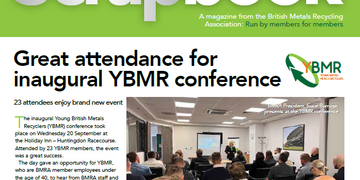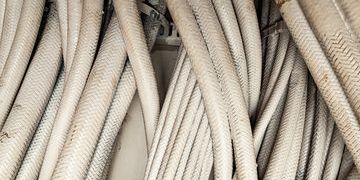BMRA raises concerns over the Plan's focus on compliant operators rather than on those operating illegally.
BMRA has responded to SEPA’s (Scottish Environment Protection Agency) consultation on its Metals Sector Plan (‘the Plan’). BMRA is committed to working closely with SEPA and other government officials to help develop and realise opportunities to promote and secure a thriving and long-term metals sector in Scotland. From this perspective, our response focused only on the recycling and reprocessing aspects of the Plan.
Despite its laudable aims, BMRA is concerned that the Plan puts a disproportionate focus on compliant metal recyclers and not adequate enforcement for those operating illegally. This in turn has an impact across the metals recycling industry, as well as failing to address serious environmental concerns.
Howard Bluck, BMRA Technical Director said: “BMRA is encouraged by, and supportive of, SEPA’s desire to be a world-class regulator and its stated ambition to help operators strive for excellence in the environmental performance of their businesses. However, we believe that there are areas that could be improved upon to ensure that the Plan is fit for purpose for the legitimate metals recycling sector.
“At BMRA we particularly want to ensure that there is not disproportionate enforcement focused upon legitimate metal recyclers in regard to compliance and environmental matters. For example, the size and number of illegal operators known or suspected to be operating in metals recycling in Scotland may be as high as the number of legal operators. If funds could be redirected to support the enforcement of illegal operators, that would go some way to delivering this aspect of the Plan”.
You can read the full BMRA response here:
SEPA Metals Sector Plan response FINAL.pdf
Within BMRA membership there are 27 companies with facilities located in Scotland ranging from small family-owned enterprises to large multi-national companies. They operate from approximately 50 sites, processing a wide range of materials, including end-of-life vehicles (ELV); waste electrical and electronic equipment (WEEE); and packaging wastes, as well as household, business and industrial waste arisings. As such, the industry is a substantial contributor to the delivery of European and domestic targets on recycling and the sustainable use of resources.
Recognising that successful businesses in the future will be those that use low amounts of water, materials and carbon-based energy and create little waste, SEPA has created a framework setting out its approach to waste and resources. The Plan is available here.
SEPA’s Waste to Resources Framework has the following aims, all of which are also relevant to the metals sector:
■ Waste activities are compliant
■ Waste crime is eradicated
■ Businesses are realising the benefits of resource efficiency
■ Maximum value is derived from resources circulating in the economy
For further information, please contact:
Antonia Grey
t. 01480 455249
m. 07812037613
e. [email protected]
ENDS
Notes to editors:
1. The British Metals Recycling Association (BMRA) represents the £7 billion UK metals recycling industry.
2. The BMRA’s 260+ members include large and small businesses in the ferrous and non-ferrous sectors including shredder operators, merchants and traders.
3. Metals recycling is a globally competitive and environmentally important industry. It supplies secondary raw material, which preserves natural resources, saves energy and reduces CO2 emissions by up to 80 per cent in metals production.
4. The UK metal recycling industry is so efficient at recovering metal from end-of-life products that more is recovered than can be consumed domestically. As a result, around over 80 per cent of all ‘waste’ metal is now destined for export. This means we are competing against suppliers from the USA and Japan who are not required to characterise recycled metal as waste.
5. Recycling of metals is also the major contributor to the UK’s achievement of targets under EU Directives such as end-of-life vehicles and packaging.
6. In 2016, the UK exported 8 million tonnes of recovered ferrous (iron and steel) metal and approximately 750 thousand tonnes of non-ferrous metal (such as aluminium and copper).



